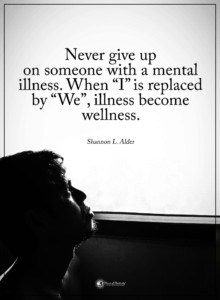Do you feel exhausted all the time? Is it all you can do to drag yourself out of bed in the morning to start your day? Are there days when the world seems to be overwhelming, and you cannot even function?
You should know that you are not alone. Many people fight fatigue daily. It’s one of the most common reasons for a visit to your doctor’s office. Now, you should know that there are 100s of explanations why you’re lethargic, and finding the exact cause isn’t always so cut and dry.
Reasons Why You May Feel Lethargic
When you head to the doctor’s office with a complaint that you’re exhausted, it’s hard to pinpoint the cause. They will run a battery of blood tests to see if there is anything out of whack that could be causing your symptoms.
Here are the most common medical problems that cause you to be lethargic.
•Low Thyroid Function
•Cancer
•Chronic Fatigue Syndrome
•Fibromyalgia
•Iron Deficiency
•Anemia
•Diabetes
•Adrenal insufficiency
•Endocarditis
•Sleep Apnea
•Mental Illness
Mental Illnesses That Cause Fatigue
Mental illness is a broad category that is used to describe disorders of the mind. Since you can’t take a blood test or a physical examination to determine a mental health problem, doctors must rely on gut instincts and the questions you answer.
If you’re constantly lethargic and feel there is a mental issue to blame, it could be one of these conditions.
1. Depression
It’s estimated that there are more than 17.3 million people in the United States that battle depression. There are different varieties of this illness, as some can be acutely brought on by circumstances or ongoing.
Depression should not be confused with the blues. It’s normal for people to experience times where they are low in life due to circumstances beyond their control. However, depression is a mental illness that lasts for more than a few weeks.
When you can’t shake the downtrodden feeling you have, then it may be depression. Since depression’s number one symptom is feeling lethargic, doctors might first consider this diagnosis before ruling out more serious health concerns.
2. General Anxiety Disorder
General anxiety disorder is a condition that affects more than 18 percent of the adult population in this country. It’s a disorder that is generalized because its symptoms are varied to each person. The most common symptoms of this disorder are nervousness, dizziness, lethargy, disassociation, and panic attacks.
A person who fights anxiety struggles continuously because their mind won’t stop. They may find going to sleep difficult because they ruminate about their problems. Not only does the condition cause exhaustion, but it’s hard to sleep when you have irrational worries that keep you from getting the rest your body needs.
3. Bipolar Disorder
Bipolar disorder is a condition where a person can go long periods without rest, which is called the manic phase. If you suffer from this condition, you may spend money you don’t have, engage in risky behavior, and have a short fuse.
During a manic phase, you will not require sleep, but there is also a depressive phase to this condition. During this period, you won’t be able to get enough rest. Your body may be so rundown from the months of mania that you could sleep 20 hours a day.
Though bipolar is more common these days, it can be treated. The manic and depressive phases can be controlled, and you can live life to the fullest.

4. Obsessive-Compulsive Disorder
While OCD or obsessive-compulsive disorder falls under general anxiety, it’s also significant enough to be considered an independent diagnosis. OCD is a condition where people are so anxious because their minds obsess about things beyond their control.
It’s not uncommon for the person that suffers from OCD to count, lock, unlock the door numerous times, and do things in a particular order. It’s the obsessive nature of this condition that causes you to feel lethargic.
While the condition itself doesn’t make you tired, your mind won’t stop, and you partake in ritualistic behaviors that can cause exhaustion.
5. Autism Spectrum Disorder
Autism Spectrum Disorder is a condition that is split into five types. Neurological and cognitive delays and abnormalities mark the symptoms of this condition. While it’s not a mental illness, it’s worth including.
Here is why.
If you have this condition, you will have issues communicating and interacting with others, which can be exhausting.
Additionally, the repetitive behaviors and difficulty understanding what’s going on in the world around them can wear their body down. People with ASD often will sleep too much or too little, depending on the severity.
6. Factitious Disorder
If you are suffering from a factitious disorder, then you are a hypochondriac obsessed with sickness. Every pain in your body will cause you to think that you’re dying or having a significant illness. While you should know that people suffering from this condition don’t do this on purpose, the underlying root of this disorder is the desire for attention.
You may be lethargic as your mind is continuously ruminating on medical problems and treatments needed. Plus, you can exhaust yourself by running from hospital to urgent clinics and to drug stores trying to get help. The condition is rare, as less than one percent of the population has it.

7. Schizoaffective Disorder
A person that has schizoaffective disorder has a combination of schizophrenia and bipolar. This illness has times of psychosis and mental instability. It’s not uncommon for this person to have delusions or hallucinations, but not everyone will experience these symptoms.
The schizoaffective individual may find that their mind is always caught up in paranoia, and they can experience mania and depression too. The suicide rate of this disease is high, as it’s hard to treat. However, it’s understandable why exhaustion is considered normal with these folks.
8. Schizophrenia
Schizophrenia is one of the most severe of all mental illnesses. An impaired way of thinking marks it. This person will often feel that someone is out to get them. They are usually fearful of anyone and everything.
They will have either auditory or visual hallucinations or delusions. It’s challenging to treat these folks because they have little trust in the medical community.
It’s easy to see that hallucinating and having delusions and a high level of paranoia makes it difficult to sleep.
9. Trichotillomania
The person with trichotillomania pulls their hair out and picks at their skin continuously. It’s a nervous habit that is caused by extreme anxiety. People with this condition will pull out their eyebrows, eyelashes, and hair.
It’s not uncommon for this person to stay up all hours picking and pulling. Their obsession may keep them up at night, and it can cause them to feel lethargic.
10. Depersonalization Disorder
People who suffer from depersonalization disorder often feel like robots or that they are living in a dream world. The world may look like a cartoon to them, and they have a hard time adjusting to their surroundings. This mental health concern can come and go, or there can be periods where it’s non-stop.
Though the folks experiencing this are not going crazy, they may feel as if they are. They may struggle with depression, anxiety, and be exhausted from fighting battles in their mind. Each episode can last a few minutes, or it can last years, though that is rare.
Commonly, anxiety is at the core of this illness, and once the tension is treated, the condition will go away. Additionally, it can be a symptom that a panic attack is about to happen, and the body is giving a warning.
 Final Thoughts About Feeling Lethargic and Struggling with Mental Health
Final Thoughts About Feeling Lethargic and Struggling with Mental Health
If you find that your lethargy significantly impacts your life, then there are many things you can do. First, you can try taking a nap each day. To keep your energy levels up, take one or two naps to help boost your stamina.
Naps can be anywhere from a half-hour to an hour in length. Many people find that they feel refreshed and ready to tackle the day with a power nap. If napping is not an option, things like B12 and Vitamin C are also known to boost energy.
Don’t opt for caffeinated drinks that can speed up the heart and cause palpitations. It would be best if you tried natural things, like herbs, that can nourish and heal parts of the body affected. Some herbal treatments can be just as effective as antidepressants for treating depression and anxiety.
While you may be tired, you can find ways to cope and still live life. Don’t overextend yourself, and don’t be afraid to say no when you’re overloaded. Living with exhaustion is possible if you learn how to manage it appropriately.
The post 10 Mental Illnesses That Can Make You Feel Lethargic appeared first on Power of Positivity: Positive Thinking & Attitude.
【Top 10 Malaysia & Singapore Most Beautiful Girls】Have you follow?
